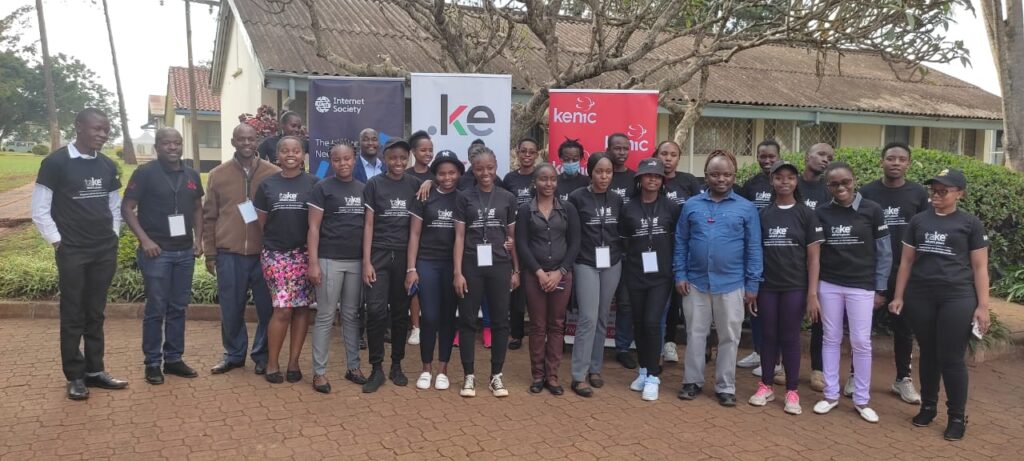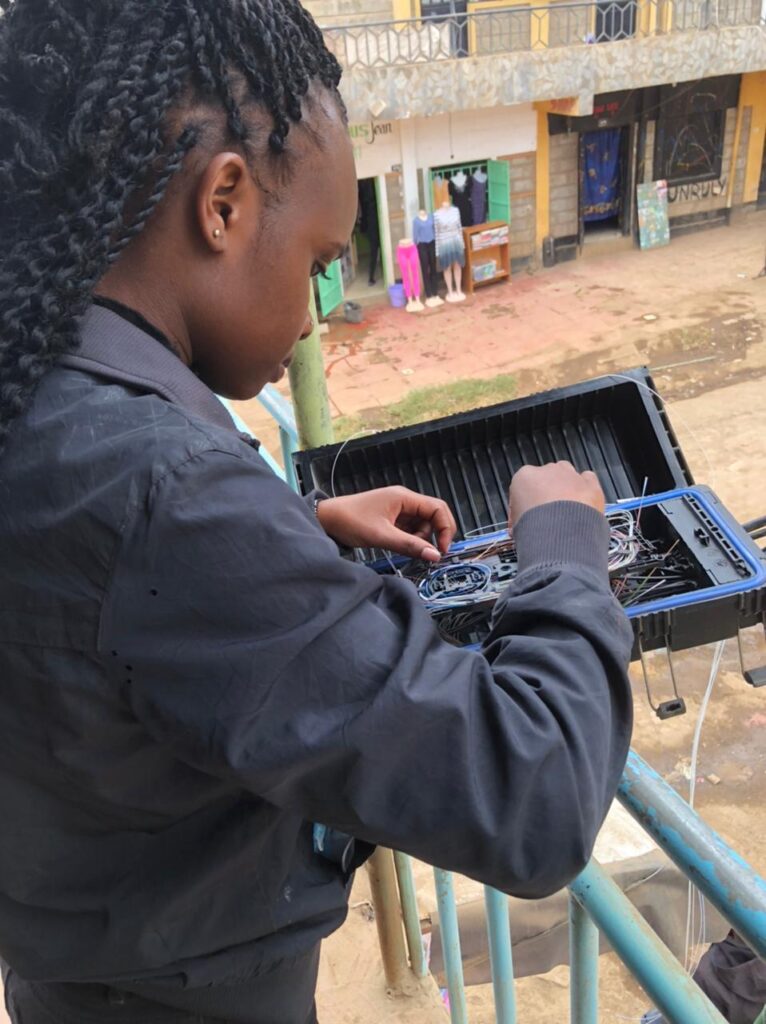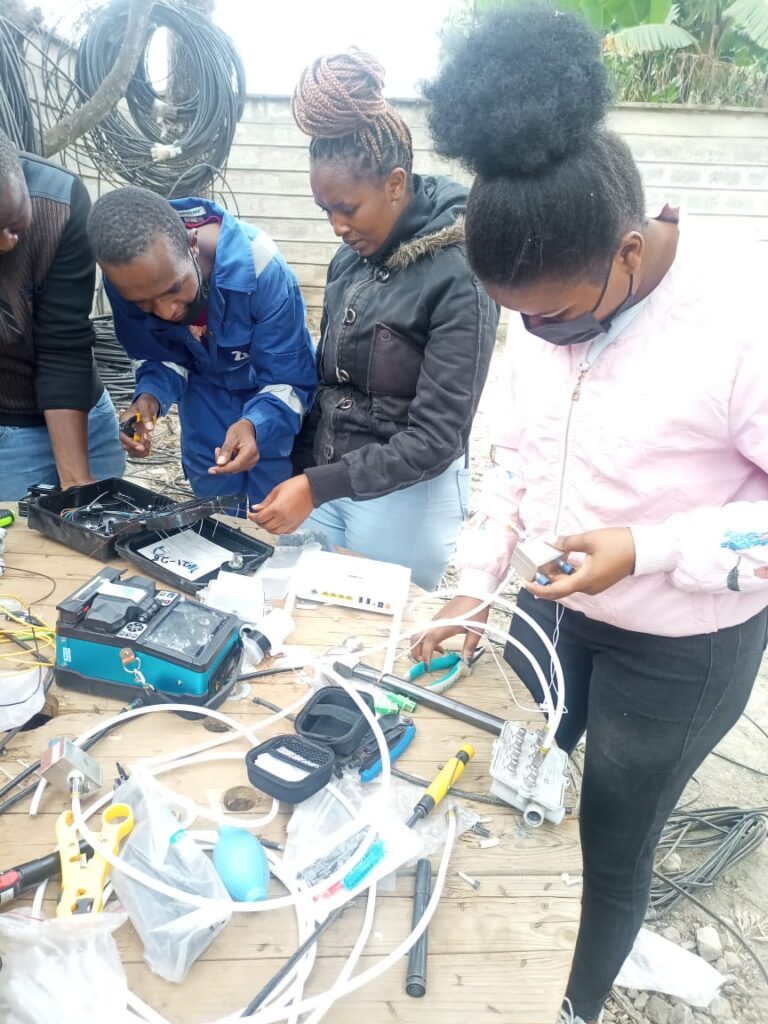Designing and Deploying Computer Networks in Kenya
Recently young people from Kenya participated in an Internet Society training course which gave them tools and knowledge about connectivity.


Giving people of local communities around the world the knowledge and ability to set up and maintain their own Internet connection is essential to ensure sustainable connectivity and bridge the digital divide. Through our partnership with the Internet Society, 48percent.org contributed financially to their educational endeavors that support bridging the digital divide. One of these endeavors was a training course in Kenya that allows young people to learn how to facilitate network infrastructure and network security for their local community. Throughout the program, the students that participated acquired knowledge about topics like Internet installation and configuration, maintenance work, marketing and communications, and how to trace and correct faults in networks. In this blog post we want to share some of the stories and experiences from the students regarding what they learned and how they hope to benefit from their newly acquired skills in the future.

Learning the basics of network installation
The training program consisted of a course where each participant was given an introduction to network installation, fiber splicing, and troubleshooting. After the course was over each student was connected to different local companies in Kenya through an internship to set up radio stations, wifi hotspots, and to learn about security and network performance. During their internships, the goal is to gain practical knowledge and physical skills within their field of training.
The students each wrote a report at the end of their training, which told us about the skills they developed during the project. Throughout the training course they learned about how different components of a network are installed, as well as the practical experience of connecting their villages to the Internet. Towards the end of the Designing and Deploying Computer Networks (DDCN) training course, we asked if the students could describe their experience. Here are some of the responses we got:
“It was the most effective training I have ever had, I gained a lot of skills and learnt a lot of things in networking within a short period of time.” (Naomi).
“It was awesome, it helped me gain more experience in networking, like how to install networks, routing configuration, receivers configurations and RJ45 termination.” (Stella)
We asked the students what they were most excited about when starting their internship following the theoretical training they had received during the DDCN course, and several mentioned the value they could create through their work, by facilitating better social life and communication opportunities. Winfred, one of the women participating in the course said the following: “I will use the skills I acquired during training to design and deploy robust networks which will be of help to the unconnected citizens. I am excited to explore the network engineering field, sharpen my skills and learn more from my colleagues during the internship”. In addition to learning about the installation and configuration of networks, the students also highlighted the perhaps unintended knowledge they had gained through the internships such as the importance of internet access, marketing, customer service, working in teams, and other soft skills such as interpersonal relationship building.

Sharing skills with the community
The last question we asked the students was to describe how they think they will benefit from their acquired skills. Their suggestions regarding the opportunities they could gain from the training varied, with the main emphasis being on how they wanted to use their newfound knowledge to provide their communities with internet connections and how this could enable them to improve technological development. Several highlighted their ambition to start learning programs for other young people, as well as being business owners, pursuing their career goals or getting a foot in the door in the job market. Both Mark and Purity, two students participating in the course, expressed their wish to bring their knowledge to the community by starting their own businesses:
“My main aim is to start my own networking company to help my community where we have a very poor network. I also have a dream of starting up a school to help other students learn about Designing and deployment of computer networks.” (Mark).
“I am so sure I will get to hold such a program as this for more young and maybe ladies. I will supply networks and networking devices around the world. I will get to work with more great network engineers such as the ones I got to meet during that training.” (Purity).
Through answering the question regarding how the skills can help them in the future, the students highlighted the sustainability aspect of the project – namely that they are eager to share the knowledge with their community and through this can maintain and ensure that they knowledge they gained expands within the community, making the Internet more accessible to people in the long run.